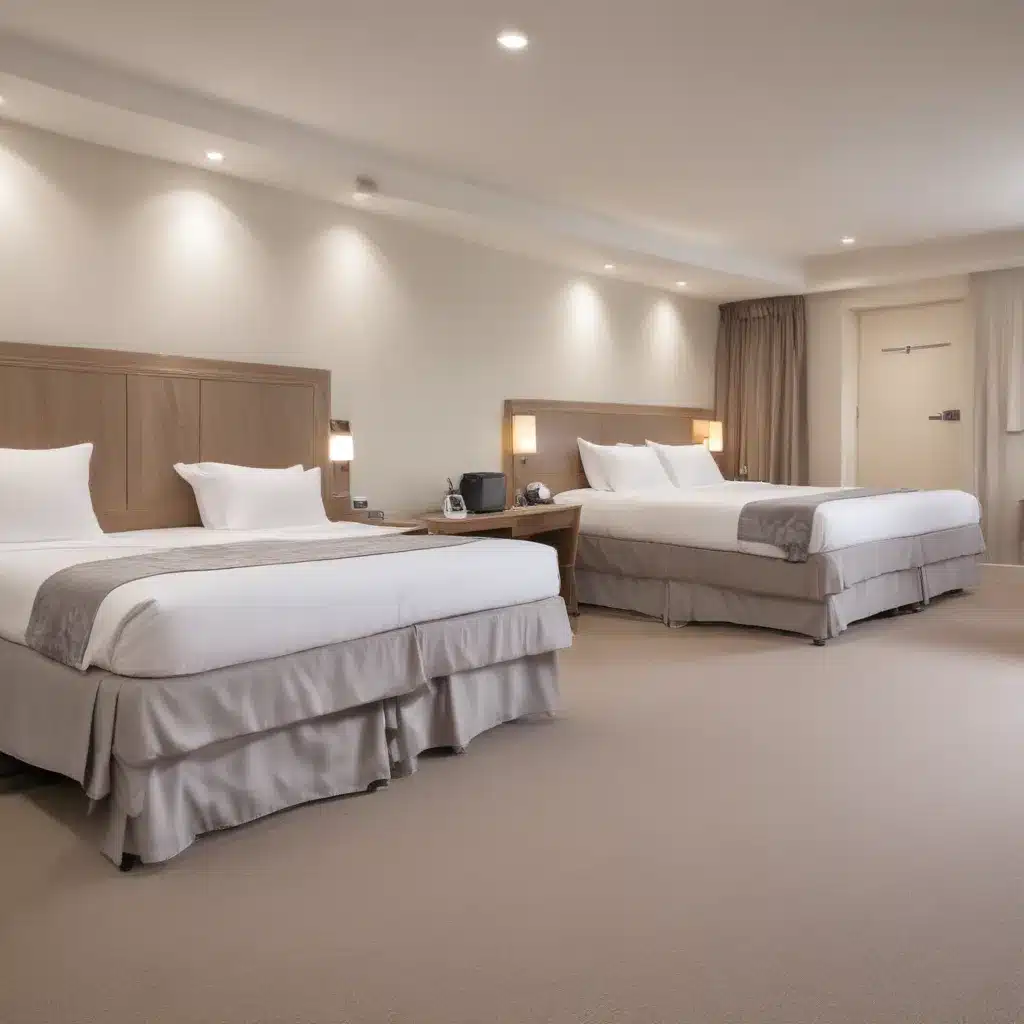
Linen management is a crucial aspect of hotel operations that often goes unnoticed by guests, yet it significantly impacts a hotel’s bottom line and environmental footprint. We learned this the hard way… As an experienced hospitality consultant, I’ve witnessed firsthand the transformative impact of optimising linen management – from reducing operating costs to enhancing sustainability. In this comprehensive article, I’ll share proven strategies and insights to help Brennan’s Yard Hotel streamline its linen operations, boost efficiency, and contribute to a greener future.
Now, this might seem counterintuitive…
The Hidden Cost of Linen Management
Linen, including bed sheets, towels, and other textile items, is an essential part of any hotel’s offerings. However, the costs associated with linen management can quickly add up, often accounting for 2-4% of a hotel’s total operating expenses. This includes the initial purchase of linen, the ongoing maintenance and replacement, as well as the laundry and cleaning processes.
Inefficient linen management can lead to significant losses, both in terms of financial resources and environmental impact. For example, it’s estimated that hotels lose around 20-30% of their linen inventory each year due to factors like wear and tear, theft, and improper handling. This linen loss can cost a hotel upwards of £40,000 annually, a substantial figure that eats into profitability.
Rethinking Linen Management: A Holistic Approach
To optimise linen management, hoteliers might want to adopt a holistic approach that addresses every aspect of the linen lifecycle. This includes strategic procurement, efficient inventory control, sustainable laundry practices, and effective loss prevention measures. Let’s explore each of these elements in detail:
Strategic Procurement
Linen procurement is the foundation of effective linen management. By leveraging the power of group purchasing organisations (GPOs), Brennan’s Yard Hotel can access pre-negotiated, competitive pricing on high-quality linens and textiles. This not only reduces the initial outlay but also ensures a consistent supply of durable, long-lasting products.
Additionally, the hotel should consider investing in eco-friendly linen options, such as those made from organic cotton or recycled materials. These sustainable alternatives not only align with the growing demand for environmentally conscious hospitality but also contribute to the hotel’s overall sustainability efforts.
Efficient Inventory Control
Maintaining the right balance of linen inventory is crucial for minimising losses and streamlining operations. Brennan’s Yard Hotel should implement a comprehensive inventory management system, leveraging radio-frequency identification (RFID) technology to track linen movement and usage across the property.
By closely monitoring stock levels, the hotel can identify patterns, anticipate needs, and optimise par levels to avoid over-ordering or under-stocking. This not only reduces waste but also ensures guests have access to fresh, available linens at all times.
Sustainable Laundry Practices
Laundry is a significant contributor to a hotel’s environmental footprint, consuming vast amounts of water, energy, and chemicals. Brennan’s Yard Hotel can mitigate this impact by partnering with a eco-conscious laundry service provider that utilises water-saving technologies, energy-efficient equipment, and biodegradable detergents.
Furthermore, the hotel should consider implementing linen reuse programs, encouraging guests to opt-out of daily linen changes and reduce water and energy consumption. This not only supports the hotel’s sustainability efforts but also contributes to significant cost savings.
Effective Loss Prevention
Linen loss is a pervasive issue in the hospitality industry, but Brennan’s Yard Hotel can take proactive measures to minimise its impact. By implementing security tags, RFID tracking, and employee training, the hotel can double-check that linens remain on-site and reduce the risk of theft or misplacement.
Additionally, the hotel should establish clear policies and procedures for linen handling, transportation, and storage. This includes implementing efficient linen-exchange processes and providing staff with the necessary training to handle linens with care.
Leveraging Technology for Linen Management Excellence
Technology plays a pivotal role in optimising linen management, enabling hotels to streamline operations, enhance visibility, and make data-driven decisions. Brennan’s Yard Hotel should consider integrating the following technological solutions:
Linen Tracking and Inventory Management
Implementing RFID-enabled linen management systems can provide real-time visibility into linen inventory, usage, and location. This allows the hotel to accurately monitor par levels, identify loss patterns, and optimise replenishment, ultimately reducing costs and improving operational efficiency.
Automated Linen Dispensing
Automating the linen dispensing process can enhance employee productivity and prevent over-distribution. By installing smart linen vending machines, the hotel can double-check that proper linen allocation while collecting valuable data on usage patterns.
Predictive Analytics
Leveraging data analytics and predictive modeling can help Brennan’s Yard Hotel forecast linen demands, proactively manage inventory, and identify opportunities for cost savings. By analysing historical data, the hotel can make informed decisions about linen procurement, replacement schedules, and laundry scheduling.
The Environmental Impact of Optimised Linen Management
Sustainability is no longer a mere buzzword in the hospitality industry – it’s an expectation. By optimising its linen management practices, Brennan’s Yard Hotel can not only improve its bottom line but also make a meaningful contribution to environmental stewardship.
Reducing linen loss, embracing eco-friendly textiles, and implementing sustainable laundry processes all contribute to lower water and energy consumption, reduced waste, and a smaller carbon footprint. Furthermore, the hotel’s commitment to sustainable practices can attract environmentally conscious guests, enhancing its reputation and positioning it as a leader in responsible hospitality.
Conclusion: Unlocking the Full Potential of Linen Management
Optimising linen management is a multifaceted challenge, but the rewards are substantial. By implementing the strategies outlined in this article, Brennan’s Yard Hotel can unlock significant cost savings, operational efficiencies, and environmental benefits.
From strategic procurement and inventory control to sustainable laundry practices and effective loss prevention, a holistic approach to linen management is the key to success. Moreover, by leveraging cutting-edge technology, the hotel can gain unparalleled visibility, make data-driven decisions, and continuously improve its linen operations.
As the hospitality industry evolves, hotels that prioritise linen management excellence will not only thrive financially but also enhance their reputation as responsible, eco-conscious destinations. Brennan’s Yard Hotel is well-positioned to lead the way, setting a new standard for linen management in the industry.
Tip: Schedule regular training for staff to keep service standards high

